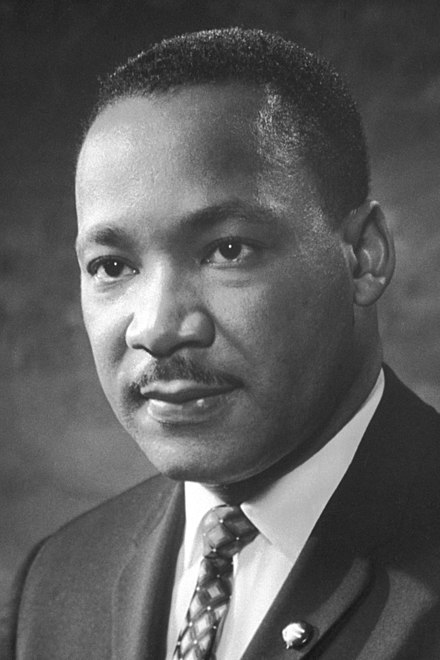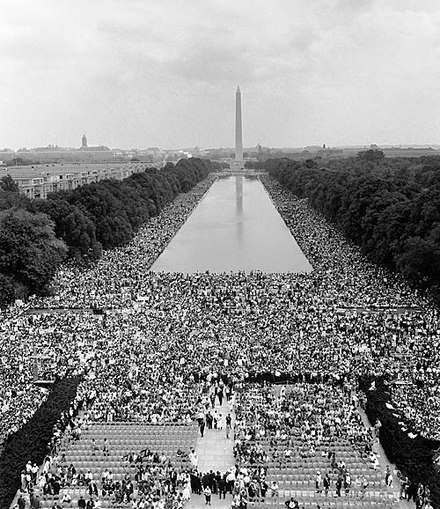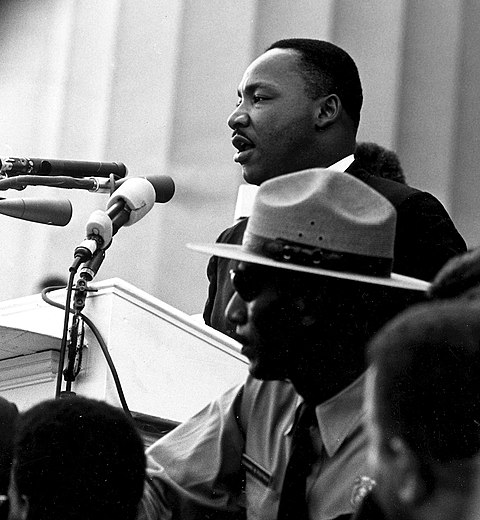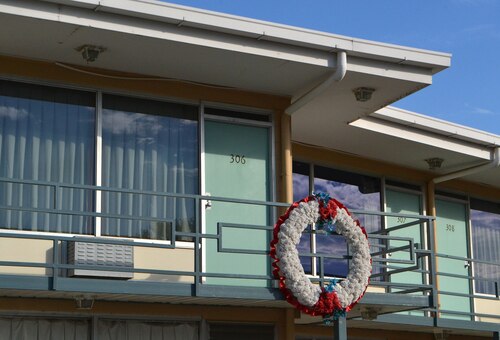Memories of Dr. Martin Luther King Jr.
January 16, 2023

It was 1968 and Dr. Martin Luther King Jr. had come to Memphis, Tennessee to speak on behalf of the city sanitation workers. I was 10 years old and living in rural Arizona at the time. I grew up before the internet, cable television and multiple news sources. I remember very little of Dr. King from those years except the pictures that came across on the evening news with CBS news anchor Walter Cronkite. It was hard to get out of one’s mind, even for a child, the stark images of dogs attacking young black children in Birmingham, Alabama or bombs and clubs being used on civil rights workers in the South. Dr. King once asked himself, “Is this America?” In 1968, he could see that the movement had accomplished a great deal, but there was still much left to do. His vision called for an America that was just.
 What is clear is that Dr. King called America to live up to its creeds. Five years earlier, in 1963, during his I Have a Dream speech on the steps of the Lincoln Memorial, Dr. King approached the issue of civil rights from the foundation of our country’s most revered political documents.
What is clear is that Dr. King called America to live up to its creeds. Five years earlier, in 1963, during his I Have a Dream speech on the steps of the Lincoln Memorial, Dr. King approached the issue of civil rights from the foundation of our country’s most revered political documents.
“ In a sense we've come to our nation's capital to cash a check. When the architects of our republic wrote the magnificent words of the Constitution and the Declaration of Independence, they were signing a promissory note to which every American was to fall heir. This note was a promise that all men, yes, black men as well as white men, would be guaranteed the ‘unalienable rights’ of ‘life, liberty and the pursuit of happiness.’ It is obvious today that Ame rica has defaulted on this promissory note, insofar as her citizens of color are concerned. Instead of honoring this sacred obligation, America has given the Negro people a bad check, a check which has come back marked ‘insufficient funds.’”
“But we refuse to believe that the bank of justice is bankrupt. We refuse to believe that there are insufficient funds in the great vaults of opportunity of this nation. And so, we've come to cash this check, a check that will give us upon demand the riches of freedom and the security of justice."
 Those words still echo down to this day. We needed to be drawn back to the promises of the American Republic found in our Declaration of Independence and Constitution. Beyond calling for a more just society, Dr. King wanted to create a community that reflected justice and a genuine sense of flourishing; he called it The Beloved Community. In order to achieve the desired end, he knew that the members of the community themselves would have to be transformed. As a result, he required that those who participated in the movement orient their lives to be consistent with the commitments of nonviolence. Beginning in 1963, he required marchers to agree to the Pledge of Nonviolence:
Those words still echo down to this day. We needed to be drawn back to the promises of the American Republic found in our Declaration of Independence and Constitution. Beyond calling for a more just society, Dr. King wanted to create a community that reflected justice and a genuine sense of flourishing; he called it The Beloved Community. In order to achieve the desired end, he knew that the members of the community themselves would have to be transformed. As a result, he required that those who participated in the movement orient their lives to be consistent with the commitments of nonviolence. Beginning in 1963, he required marchers to agree to the Pledge of Nonviolence:
- As you prepare to march, meditate on the life and teachings of Jesus.
- Remember the nonviolent movement seeks justice and reconciliation - not victory.
- Walk and talk in the manner of love; for God is love.
- Pray daily to be used by God, that all men and women might be free.
- Sacrifice personal wishes that all might be free.
- Observe with friend and foes the ordinary rules of courtesy.
- Perform regular service for others and the world.
- Refrain from violence of fist, tongue and heart.
- Strive to be in good spiritual and bodily health.
- Follow the directions of the movement leaders and of the captains on demonstrations.
Oftentimes when I think of the success of the civil rights movement, I think of the strategy and tactics that made it possible. However, it appears to me that the change Dr. King really sought was in the hearts and minds of the people who would be a genuine part of a different kind of community. When you read the Pledge of Nonviolence, you come to the realization that becoming nonviolent is not something you simply train into people. The ten disciplines are actually practiced together in community with the result of eventually becoming a different type of person.
As a 10-year-old, I was shocked that some members of the American Republic could be so cruel to others. Dr. King helped me realize that the greater achievement was in transforming people to respond to violence and hatred with love and care. It’s that kind of community that brings us hope in a better Kingdom-centered future. Dr. King did not seek victory over his opponents, but instead sought out a more just society for all citizens. In the Beloved Community, anger would be met with love, violence with peace, and need with service. It was essential, in Dr. King’s vision, that his followers learn to model virtuous living, he believed essential to creating a just republic.
As Christians, in a similar manner, we are called to work towards creating a more just and equitable society. In order to develop a Christian university, we have to model, let the Holy Spirit work within us, and develop those practices, both personally and institutionally, that would lead to a community more reflective of the coming Kingdom of God. Dr. King knew that in order to build the community he envisioned, it was essential to teach good character and love. We are called to that vision as Christ followers and as citizens of the American Republic more than 60 years later.
Much like earlier marches, Dr. King addressed the crowd in Memphis in 1968 and the community prepared to take action. The speech that night came to be known as I’ve Been to the Mountaintop . The civil rights movement had achieved so much at that time, but Dr. King knew there was still a lot left to do. His talk was prophetic and he recognized that the movement he had advanced would live beyond him. Much like Moses, he noted, he may not see the promised land:
“Well, I don't know what will happen now. We've got some difficult days ahead. But it doesn't matter with me now. Because I've been to the mountaintop. And I don't mind. Like anybody, I would like to live a long life. Longevity has its place. But I'm not concerned about that now. I just want to do God's will. And He's allowed me to go up to the mountain. And I've looked over. And I've seen the promised land. I may not get there with you. But I want you to know tonight, that we, as a people, will get to the promised land. And I'm happy, tonight. I'm not worried about anything. I'm not fearing any man. Mine eyes have seen the glory of the coming of the Lord.”

Dr. King was assassinated the next day as he stood on the balcony of his second-floor room at Lorraine Motel in Memphis, Tennessee.
Monday we will stop and recognize the importance of Dr. King to our culture and society. I encourage you to take some time on this day to reflect on Dr. King’s legacy and the impact it has had on our nation.

Robin Baker
President, George Fox University
*Note: This blog was previously posted in 2023